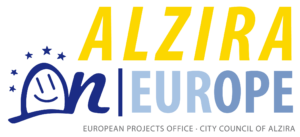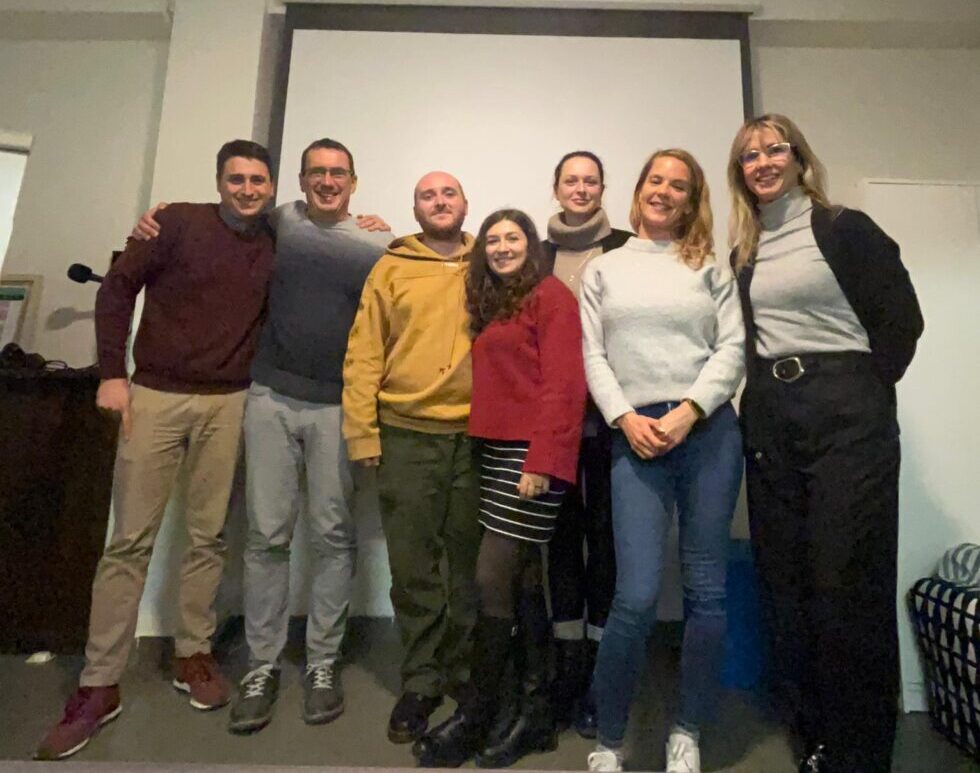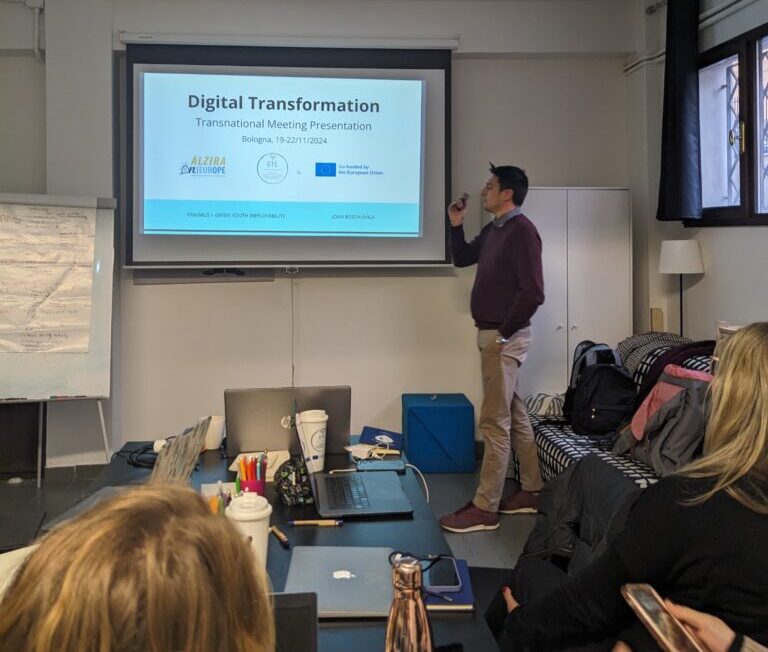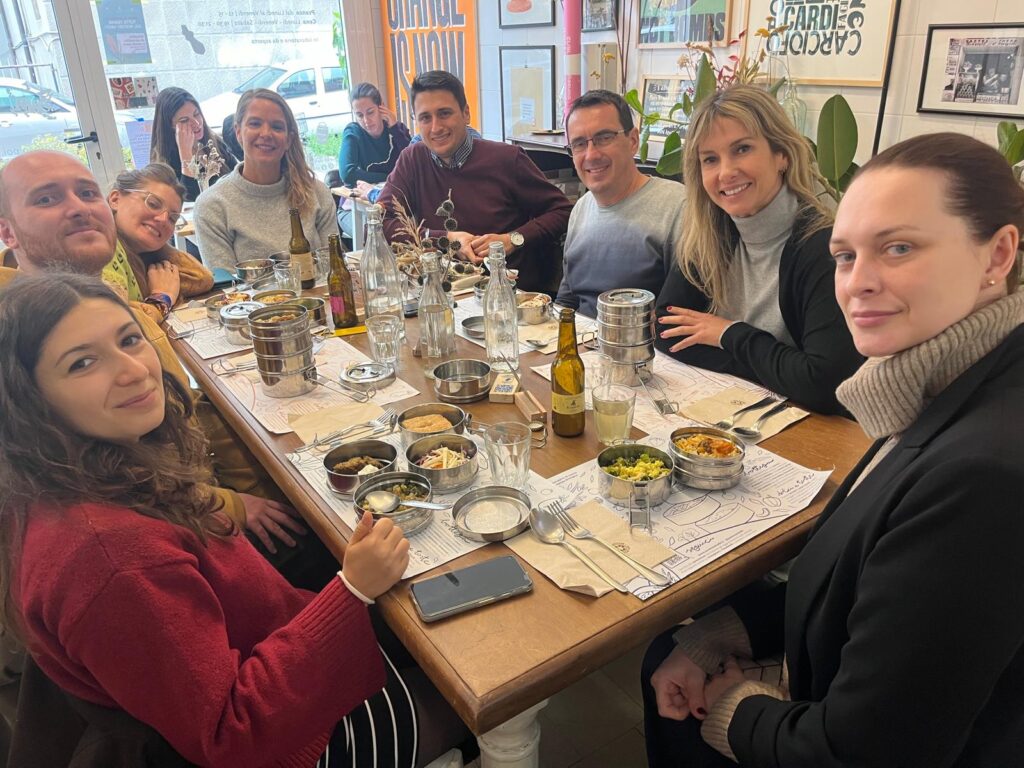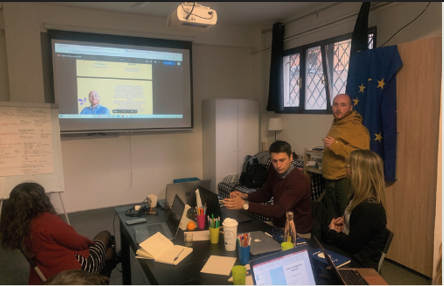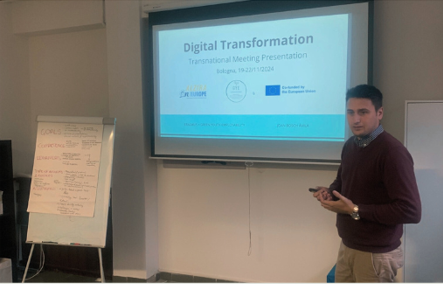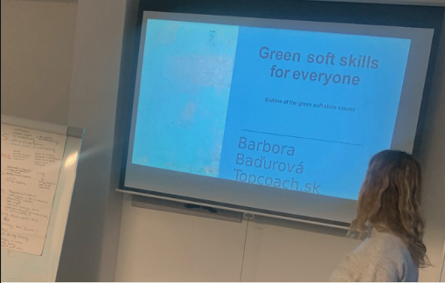
Green Youth Employability: Emerging Skills and Jobs for a Fair and Green Society
Connecting youth employment and care for the environment.
Description
The ultimate objective of the project is to structure a learning and guidance pathway for young people based on non-formal education in current and emerging green jobs, focusing on the urgency of action to create a sustainable EU that continues to provide care and quality employment for young people. It seeks to provide adequate training, guidance and support to the youth sector and young people in the green and job transition.
Project Partners




Results
- 1 survey report.
- 1 Toolkit for youth workers with tools and methods to support green skills acquisition among young people based on non-formal education in English and translated into 4 languages.
- 1 massive open online course with at least 4 learning modules, 1 forum for horizontal approach, 1 E-Portfolio space for both reflection and employability tool + E-learning space manual.
- 4 Green Youth Labs.
- 1 Handbook on the Green Youth Labs experiences and good practices.
Phases of the project:
- Kick off meeting in Bologna (Italy).
- Survey report and creation of the toolkit.
- Designing of the massive open online course and training of professional youth workers.
- Green Youth Labs.
- Dissemination of the results and sharing of good practices.
Kick Off Meeting
In January 2024, two technicians from the European Projects department attended the Kick Off Meeting of the new project «Green Youth Employability: Emerging Skills and Jobs for a Fair and Green Society» in Bologna, Italy.
It was a stressful day of meetings to plan and organise this 36-months project based on the employability of young people linked with the need to preserve the environment and natural resources, with the main objective of training young people to get quality jobs that respects the environment. This will be achieved through a survey, a toolkit, an e-learning platform and 4 green youth labs; all made by and for the project.
The meeting was organised in several parts just for organise and plan the different activities that we should do, the budget, the collaborators, etc. The strongest point was sharing our ideas, experiences and techniques to create a unique strategy to achieve our objectives.
We feel very encouraged to work in this project!

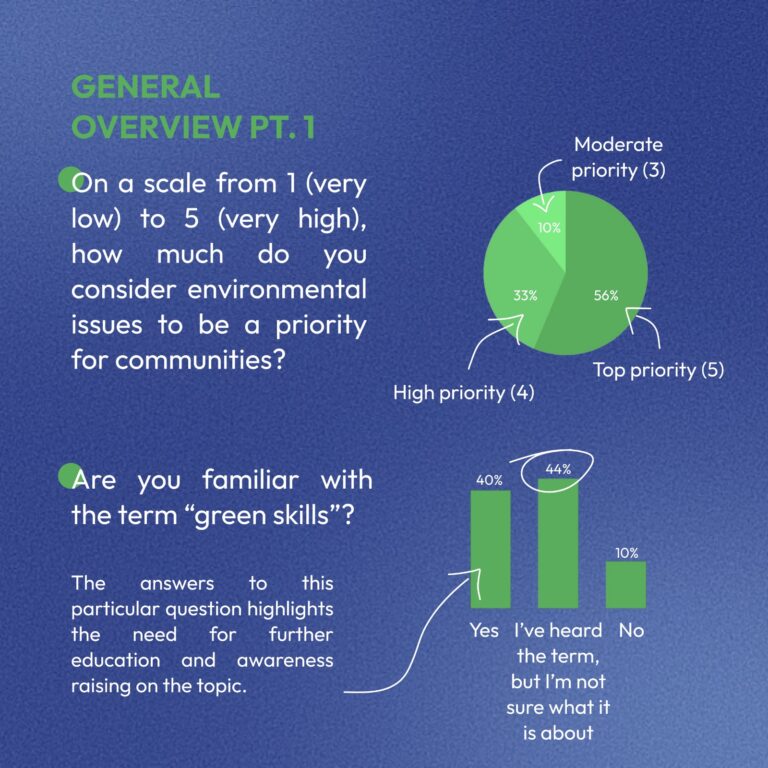
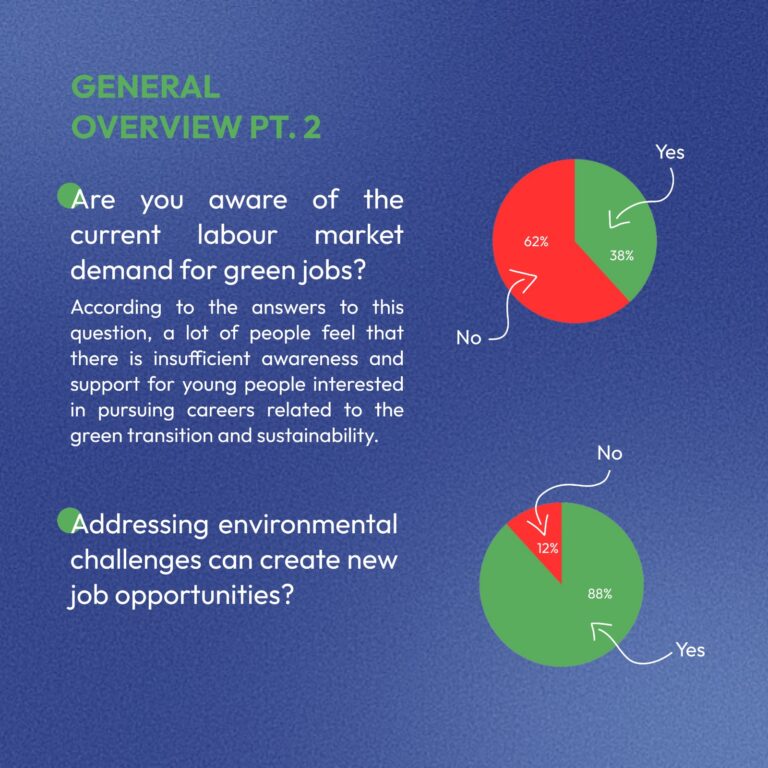
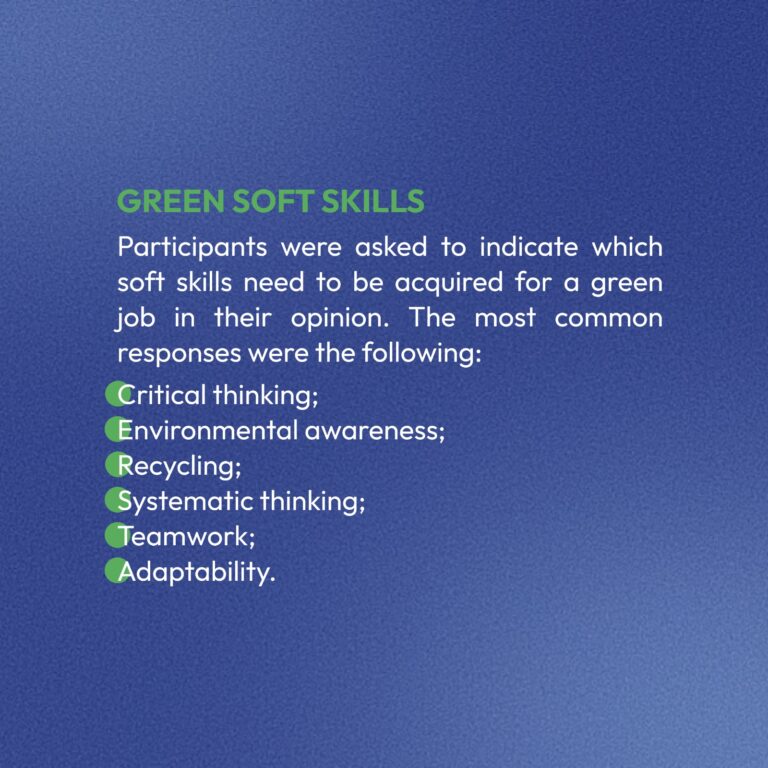
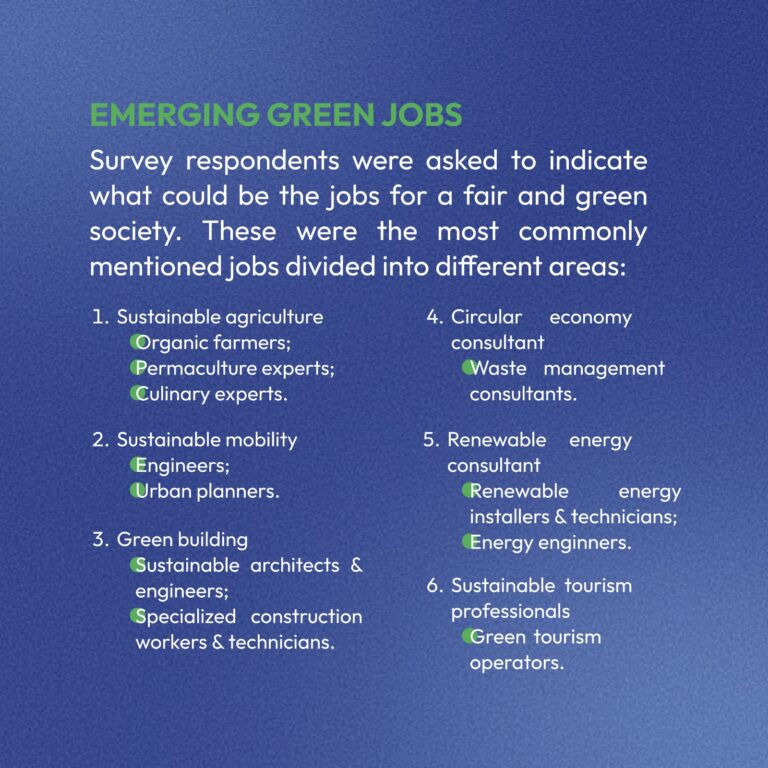
Survey
In order to adapt the toolkit and the online training course as much as possible, a survey has been designed to analyse the knowledge and interests of citizens.
On 19 April 2024, a survey dissemination event was held to motivate people to participate, and a flyer with a QR code was designed to encourage people to participate in the survey, while at the same time disseminating the project to reach more people.
At the end of the period to participate in the survey, after almost 200 responses to the survey from a wide variety of age and social groups, we have produced a report with all the results which is available here.
The survey was very revealing and gave us the keys to adapt the toolkit and the online module to the future audience. From the survey report, the most remarkable thing was that people considered environmental issues as a priority and that tackling these issues could create new jobs. You can see the highlights in the images on the left.
From here, the toolkit and online course will be released!
Testing activities with local groups
During the second quarter of 2024, the consortium of organisations involved in this project designed a series of sessions based on the EU GreenComp for the dissemination and acquisition of green competences.
During this quarter, a team of experts from all participating organisations developed 36 non-formal education sessions for the acquisition of these competences. These sessions were not only based on the GreenComp, but also on the needs of young people that we discovered in the survey that was carried out.
To ensure that the toolkit sessions were tailored to the needs and interests of the young people, a series of events were held in July to test the sessions and see how the young people interacted with them.
With all the learning, all the notes and all the suggestions; not only from the young people, but also from the teams of experts and counsellors in each organisation; we will finalise a toolkit that will be available online.
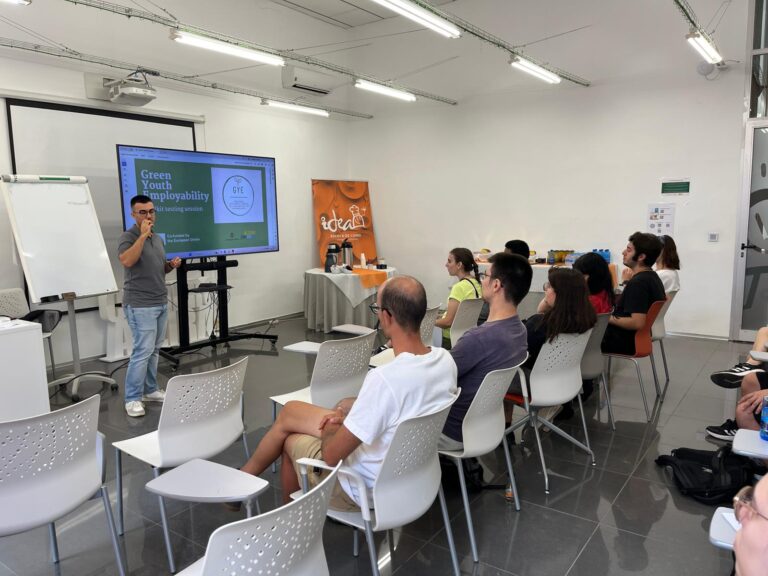
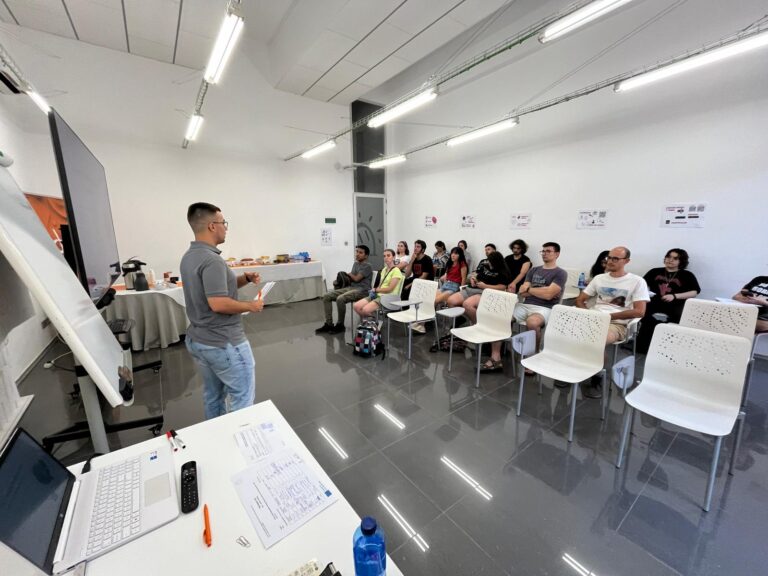
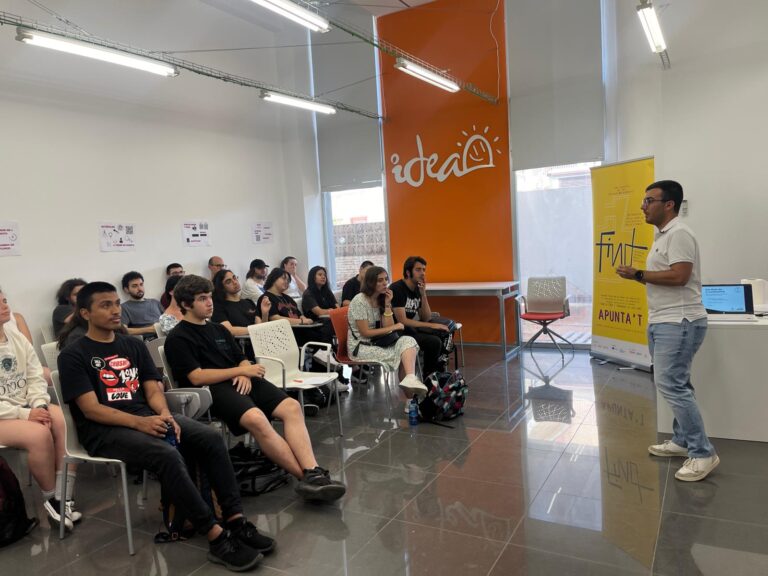
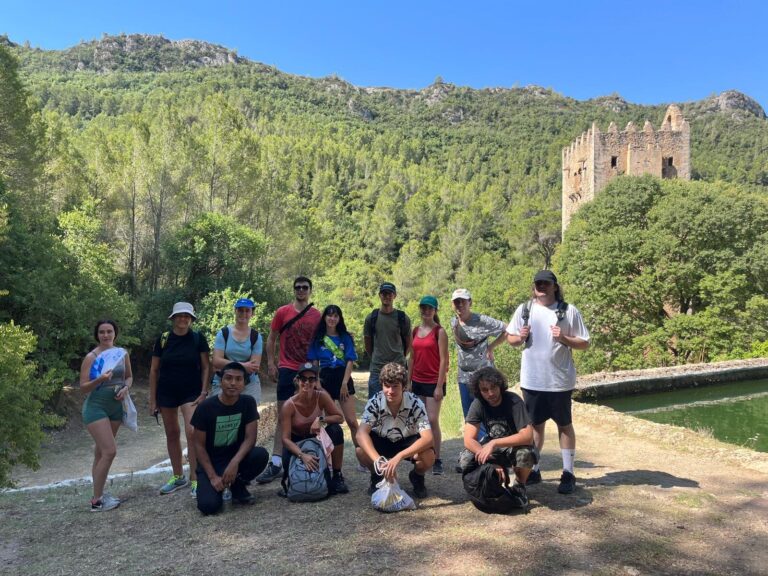
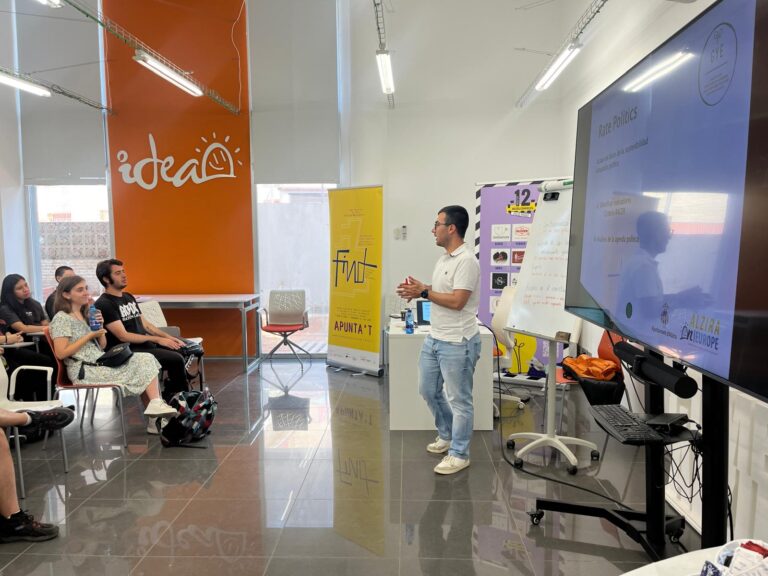
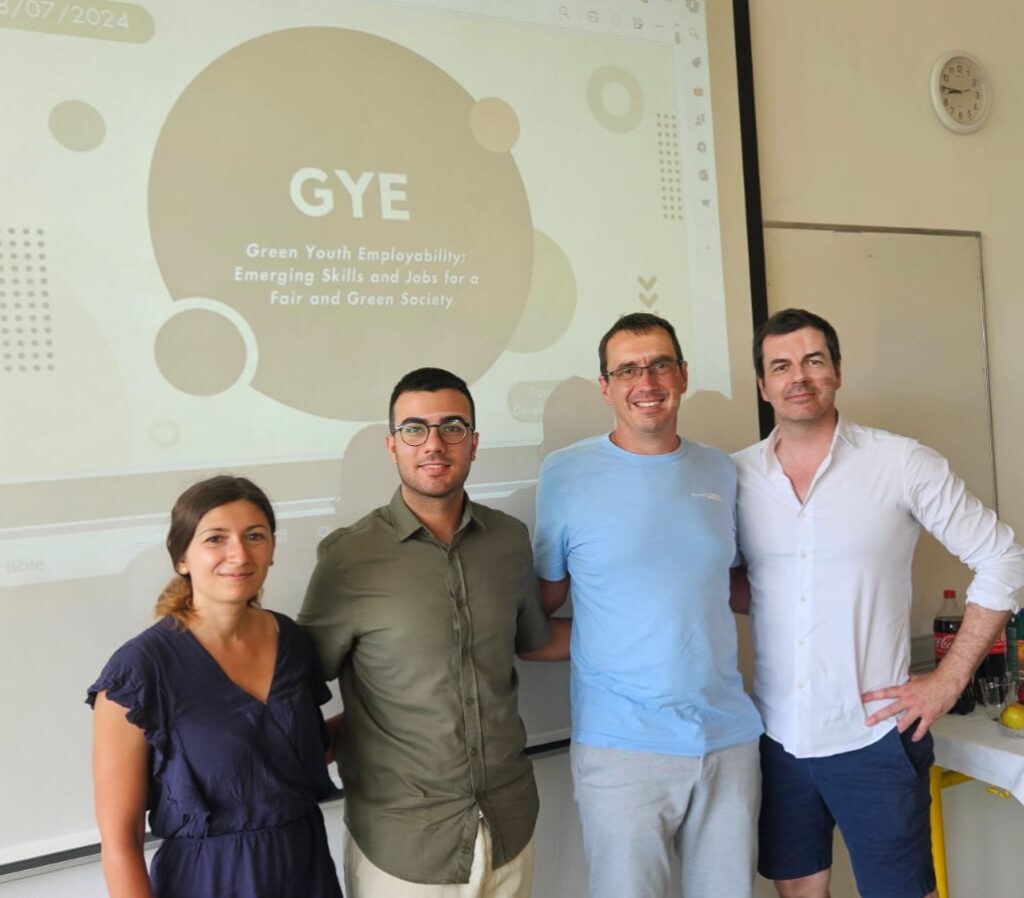
Transnational meeting in Novo Mesto (Slovenia)
On 17 July 2024 the transnational meeting of this project took place in Novo Mesto (Slovenia), at the facilities of our partners GRM Novo Mesto, which was attended by a technician from the European Projects department.
This meeting was based on a series of meetings about different aspects, such as the economic justification of the project, the activities carried out and the actions to come.
The main part of this meeting was to finalise the toolkit on green competences. From the design of the activities and the testing sessions with young people, we finished the English version of the toolkit and started planning the next steps towards the digital module.
The project is moving forward!
Toolkit
The Toolkit on Green Soft Skills is now available!
After months of work, the Green Youth Employability project’s green skills toolkit is now available. The toolkit is addressed to youth workers, educators, professionals, learning specialists, teachers, informal groups or people intending to deliver learning opportunities on green development to be inspired when designing training and learning activities based on non-formal education and soft skills in green development.
The structure of the toolkit is based on the 12 sustainable competencies outlined in the “GreenComp: The European Sustainability Competence Framework” developed by the Joint Research Centre (JRC) and published by the Publications Office of the European Union in 2022.
For each sustainable competence, the toolkit proposes 3 practical activities, tools and methods based on Non-Formal Education by gathering or adapting already existing ones or proposing new ones.
This toolkit is available in English, Spanish, Italian, Slovakian and Slovenian.
Transnational Meeting on Sustainable Communities
Held in Bologna (November 19-22, 2024), this meeting launched the development of an e-learning platform to guide youth on green jobs and sustainability skills.
Key activities included:
- Deepening understanding of climate challenges, sustainability pillars, and systemic approaches.
- Designing the platform using the ADDIE model, defining target groups, and drafting module outlines.
Outcomes:
- Shared framework for climate action and fair transition.
- Clear tasks, deadlines, and management systems.
- Initial e-learning drafts ready for development.
A crucial step towards empowering youth for green careers and a sustainable future.
WP3 The digital tool: The MOOC
During our 3rd Transnational Project Meeting (TPM) in Bologna, we discussed the incredible features of our upcoming e-learning platform your gateway to building a sustainable future!
Here’s what it will include:
- 📚1Introductory Project Module.
- 🎓 4 Learning Modules (10 hours each).
- 💬 Interactive Forum for discussions.
- 📒 E-Portfolio Tool to track your progress.
Modules Breakdown:
- Introduction: The Project – Sustainable Life for the Future
- Urban Farming & Circular Economy 🌾♻️
- Digital Transformation: Big Data, Communication, and Sustainability 💻🌍
- Food as a Sustainable Practice 🥗💡
- SoftSkills: The GreenComp Framework & Skill Development 🌟
🗣️ Courses are in English with subtitles for easy accessibility.
The Bologna meeting was a milestone in shaping this initiative, and we’re excited to share it with you soon! 🚀💚 Stay tuned! 📅✨
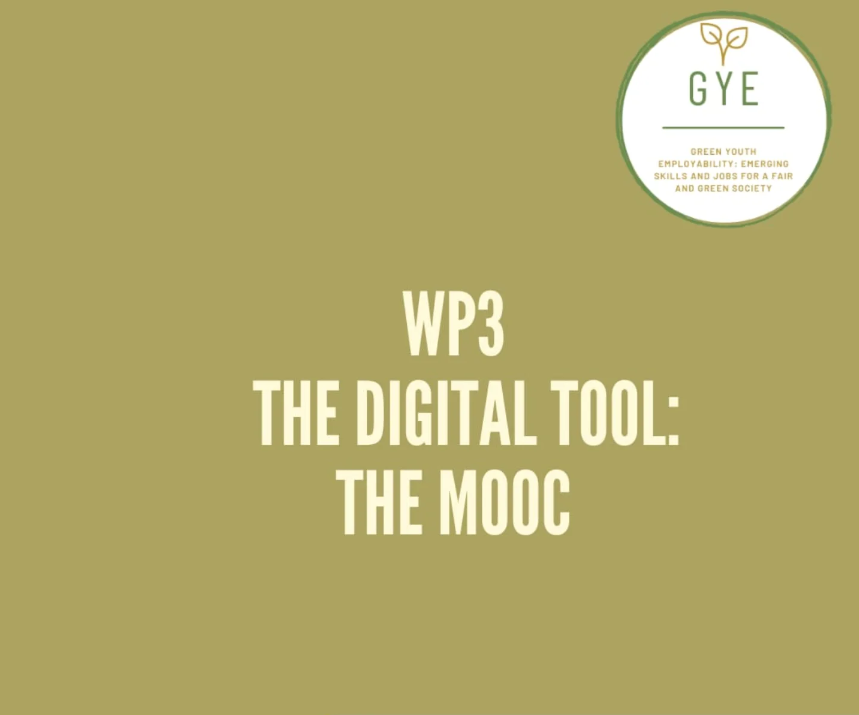
Expert Minds Driving Sustainable Learning
🌍 Exciting news from the 3rd TPM in Bologna!
MOOC EXPERTS are on board: 4 experts will frame the outputs alongside 1 organizational representative. These experts, chosen by the consortium, will design and deliver modules for our e-learning platform focusing on 4 key macro-topics.
🔍 Stay tuned for the open call! A committee from WT and MET will carefully evaluate applications to select the best profiles that align with the identified needs.
Let’s shape the future of online learning together! 🚀
ADDIE Model
At our 3rd Transnational Project Meeting (TPM) in Bologna, we took significant steps in designing our e-learning platform using the ADDIE Model – a structured approach for effective learning design.
Here’s how the ADDIE Model has shaped our project:
- 🔍 A – Analysis: Identifying learner needs and sustainability goals.
- ✍️ D – Design: Crafting the course structure, including:
- 1 Introductory Project Module
- 4 Learning Modules (10 hours each)
- Interactive Forum
- E-Portfolio Tool for tracking progress
- 🚀 D – Development: Creating engaging content and tools for effective learning.
- 🎓 I – Implementation: Preparing for seamless delivery, ensuring accessibility in English with subtitles.
- 📊 E – Evaluation: Measuring success through feedback and e-portfolio progress tracking.
Modules Breakdown:
- Introduction: The Project – Sustainable Life for the Future
- Urban Farming & Circular Economy 🌾♻️
- Digital Transformation: Big Data, Communication, and Sustainability 💻🌍
- Food as a Sustainable Practice 🥗💡
- Soft Skills: The GreenComp Framework & Skill Development 🌟
The Bologna meeting was crucial in aligning our efforts to ensure a meaningful learning experience. Stay tuned for the launch of this transformative platform! 🚀🌏
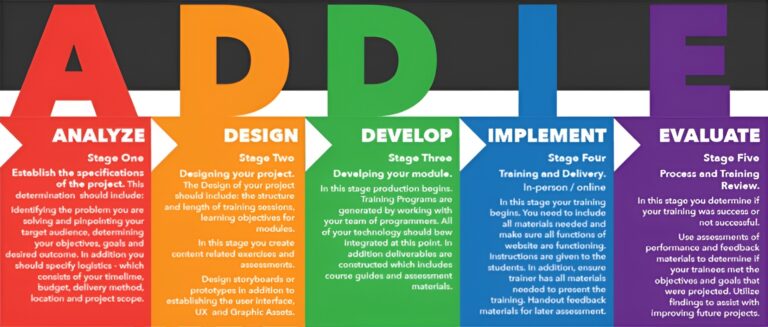
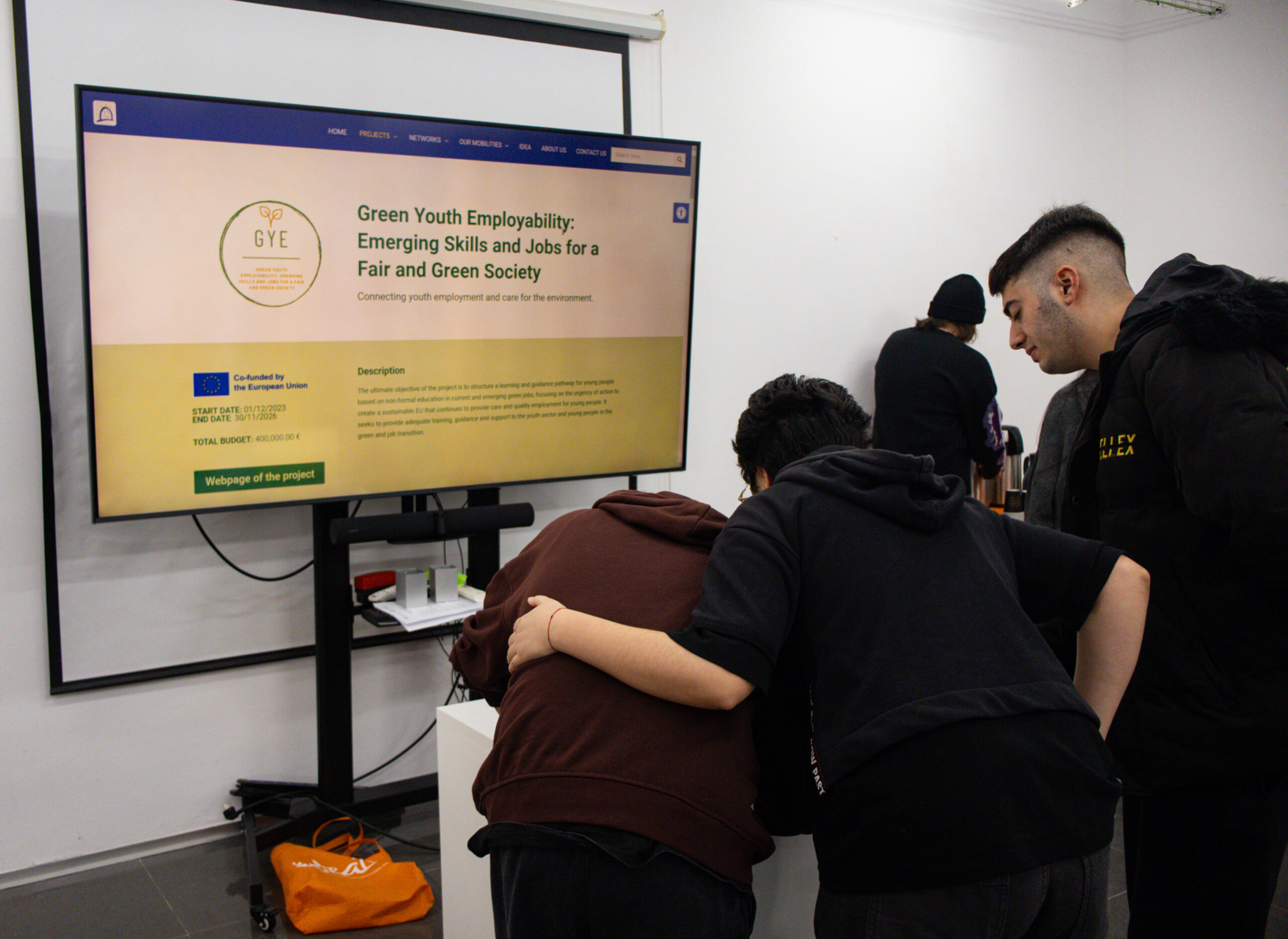
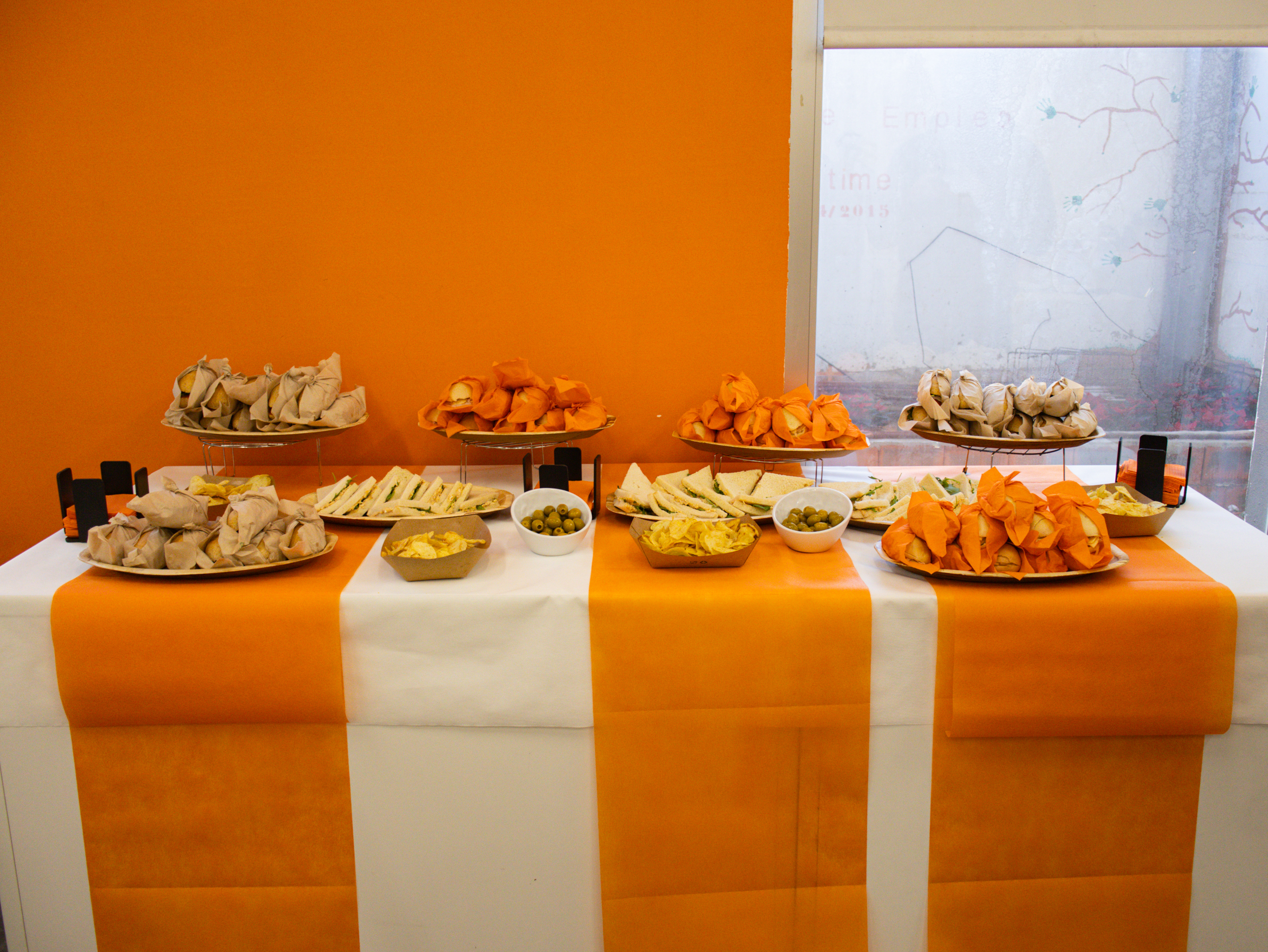
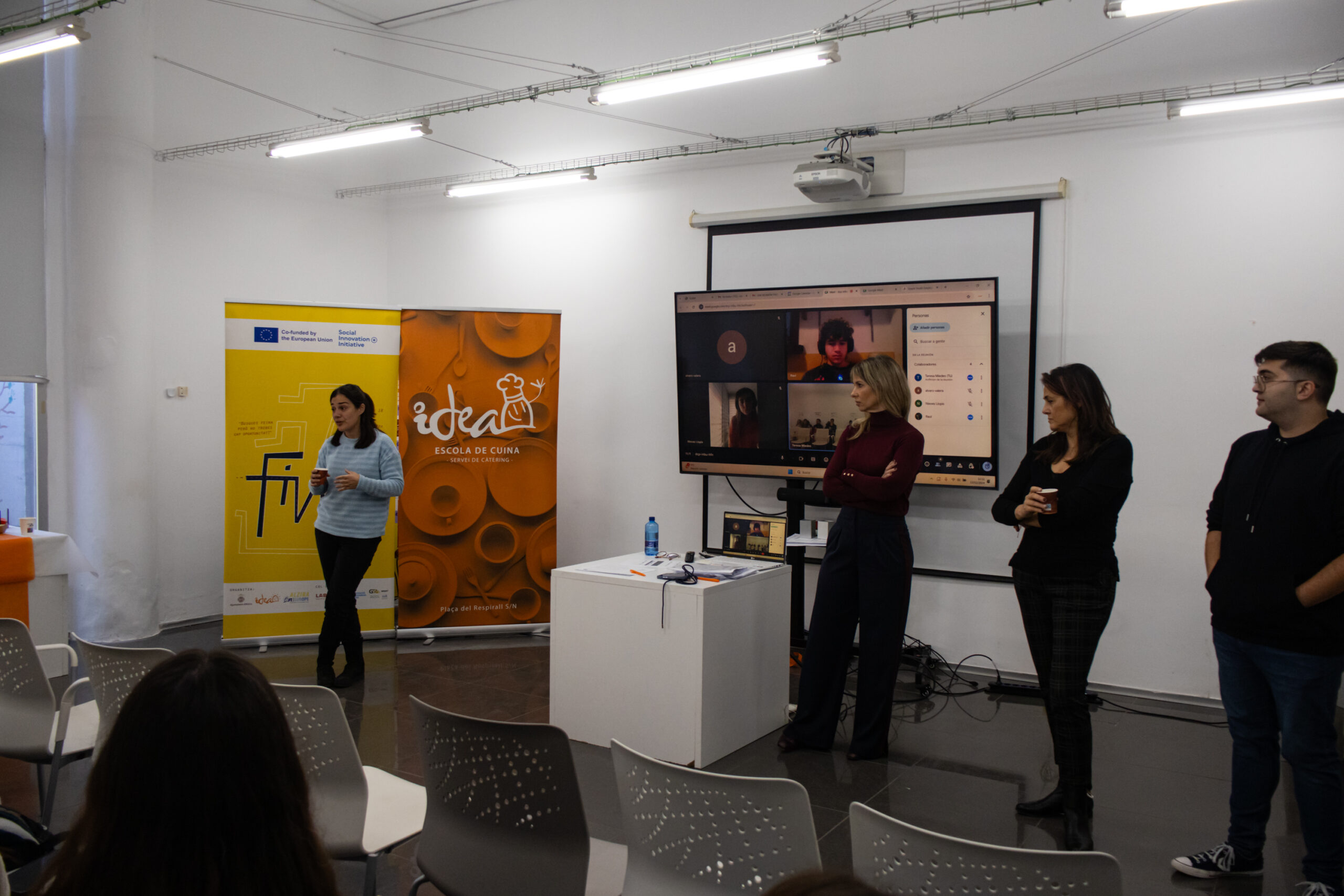
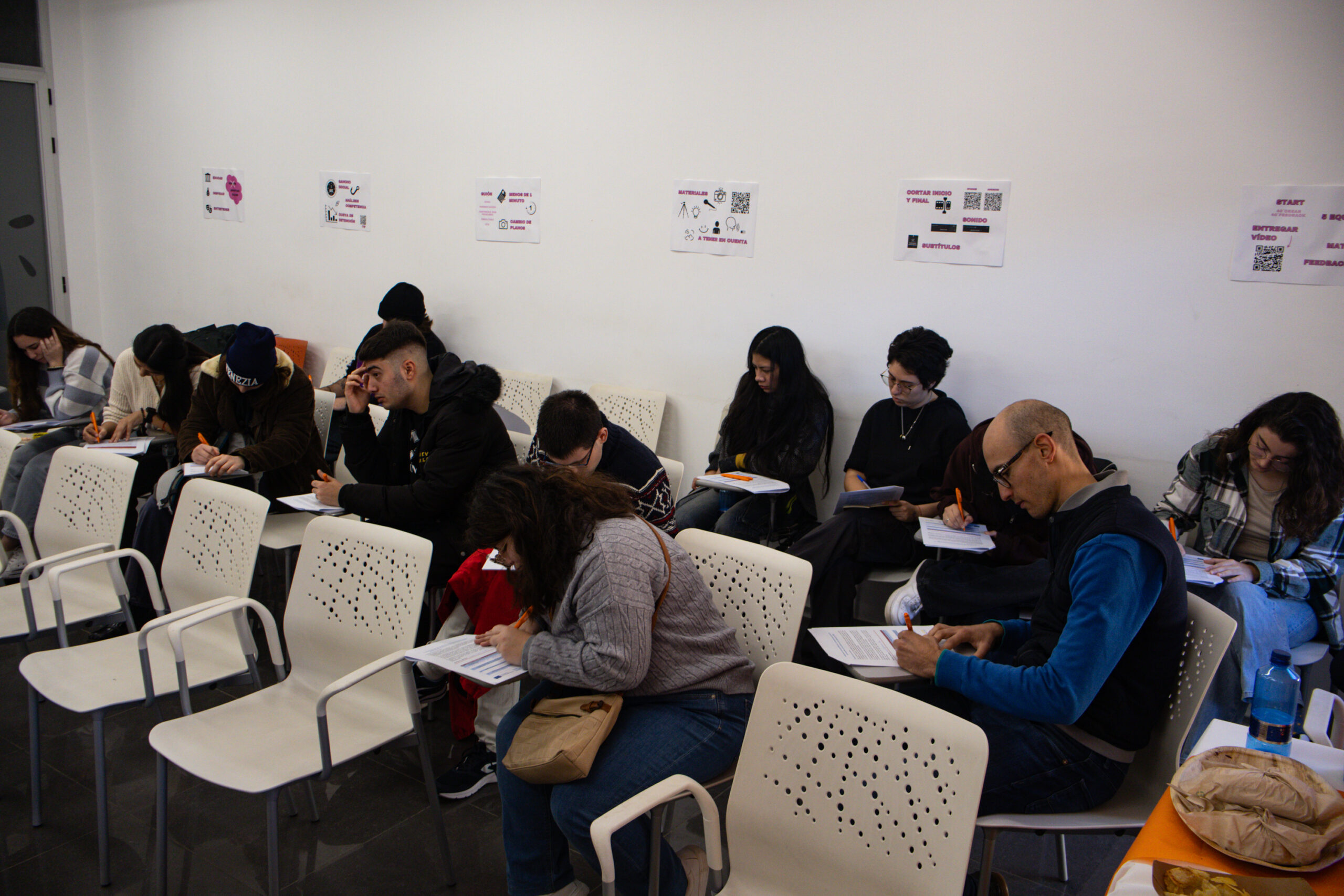
Empowering Youth for a Green Future
On December 13th, a group of 25 young people and workers from the Employment, Training, and Youth services of IDEA-Ajuntament d’Alzira gathered to learn about the «Toolkit on ecological skills: A set of tools for youth based on non-formal education,» designed within the framework of the Green Youth Employability: Emerging Skills and Jobs for a Fair and Green Society project (2023-1-IT03-KA220-YOU-000157988), co-financed by the Erasmus+ program.
The project technicians presented the document and shared their experiences with the attendees, who enjoyed a lunch prepared by the IDEA Culinary School.
The event highlighted the importance of acquiring new skills to be better prepared to face the ecological transition and to improve youth employability.










Empowering Green Skills for Youth
On March 27th, we hosted a key event at the MUMA (Museo Municipal de Alzira) with local stakeholders to assess the draft model for the Green Youth Employability: Emerging Skills and Jobs for a Fair and Green Society project. The focus was on gathering valuable feedback to refine an e-learning platform designed to equip young people, particularly those with fewer opportunities, with essential skills for a sustainable and green future.
This collaborative session is part of our ongoing efforts to ensure the project meets the needs of young people in the region, preparing them for the jobs of tomorrow in a fair and sustainable economy. Stay tuned for more updates on how this initiative is shaping the future of green jobs!
The future is green, and your journey starts here
Do you work with young people and want to help them prepare for tomorrow’s sustainable jobs?
Green Youth Employability is a European project offering practical tools and free training to develop green competencies based on the GreenComp framework.
Discover our ready-to-use toolkit
Access our e-learning platform with courses on circular economy, green soft skills, and more
Available in multiple languages
Visit our website, explore the resources, and be part of the change :
https://greenyouthemployability.eu/
Green Youth Employability – Your gateway to a sustainable future.
- Video created by Scambieuropei
Green Youth Emplooyability - Event in Bologna (Italy), 6-11 October 2025
A few weeks ago, we had the opportunity to take part in a Learning Activity held in Bologna, within the framework of the Green Youth Employability Project (Erasmus+), co-funded by the EU and hosted by our partners at Scambieuropei.
The project aims to empower young people to build sustainable careers by combining non-formal education and blended learning. Through this approach, participants explore new green job opportunities and develop essential green soft skills.
During the week, we took part in individual awareness sessions on climate, ecology, and sustainability, as well as interactive workshops on green employability, provided by the City Council of Alzira, covering topics such as green skills, personal branding, elevator pitch, and a simulation of a green job career fair. We also engaged in discussions on fair trade, healthy lifestyles, and future perspectives for sustainable living.
In addition, we had the chance to discover the project’s e-learning platform, which participants will continue to explore and test in the coming months. This experience represented a valuable opportunity to learn, connect, and grow together towards a greener and fairer future.
Our Platform Manuals Are Now Available
We’re happy to share that our “How to Use the Platform” manuals are now available! These step-by-step guides will help you navigate the platform with ease and make the most of its features and tools.
👉 Click here to access the manuals
To help you get started, we’ve also prepared an introduction to our e-learning platform, where you can learn more about the learning paths, interactive elements, and opportunities for skill development.
👉 Click here to view the introduction
We hope these resources make your experience smoother and more engaging. Take a look, explore the materials, and let us know what you think — your feedback helps us continue improving the platform for everyone!

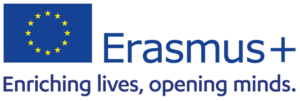
Erasmus+ project 2023-1-IT03-KA220-YOU-000157988 “Green Youth Employability: Emerging Skills and Jobs for a Fair and Green Society” has been funded by the European Commission. This document reflects the views only of the author, and the Commission cannot be held responsible for any use which may be made of the information contained therein.
